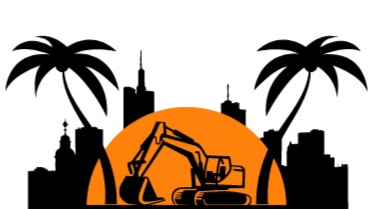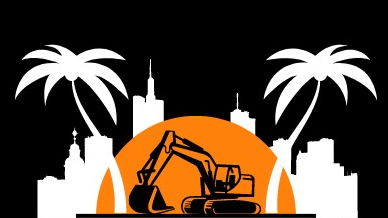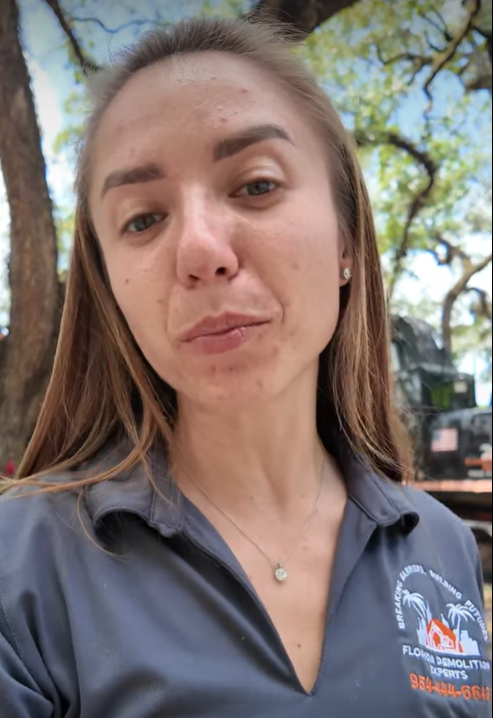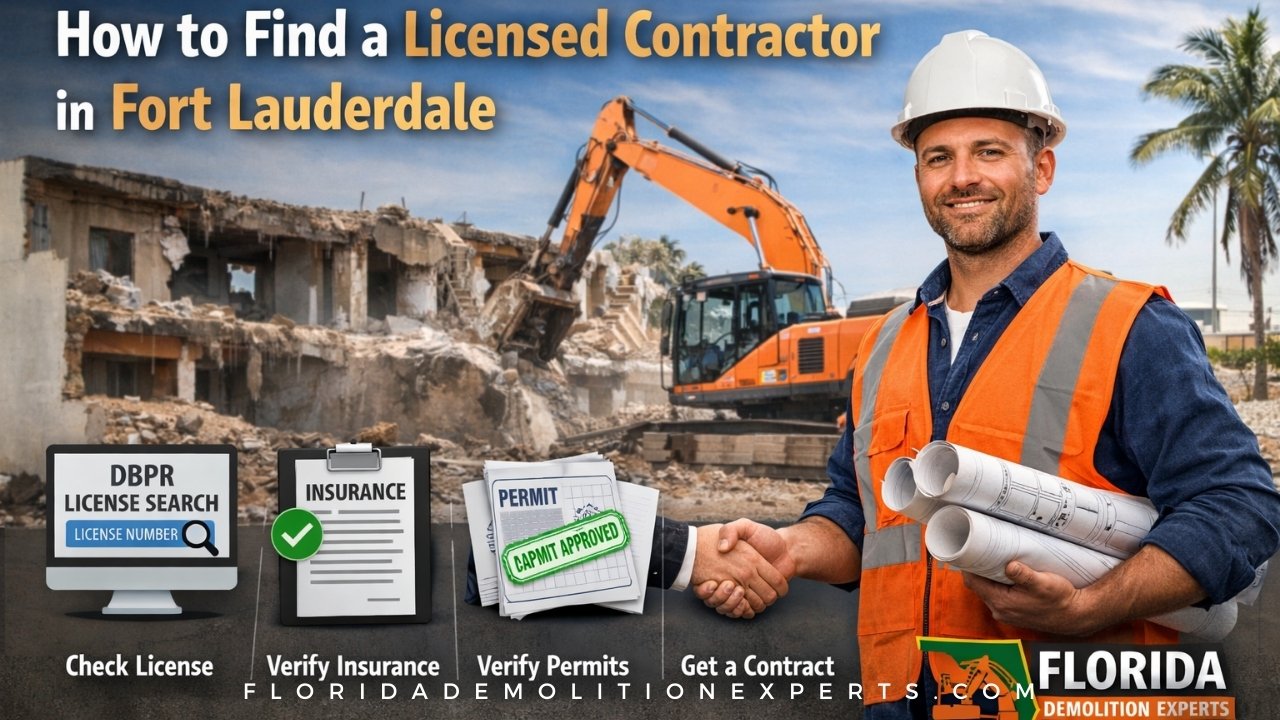Can you live in your house while part of it is being torn down?
That’s a question more homeowners ask as partial demolitions, such as tearing out a kitchen, removing a garage, or opening up a wall, become increasingly popular in Florida. Whether you’re remodeling your dream home or prepping for a significant rebuild, staying put to save money or time can be tempting.
But here’s the catch: partial demolition isn’t just noisy, it can be legally complex and surprisingly dangerous if not handled carefully.
In this article, we’ll discuss the safety considerations, legal requirements, and smart homeowner tips you need to know before staying in your home during demolition. Let’s ensure you’re protected legally, physically, and financially.
For a broader overview, don’t miss our Residential Demolition Complete Guide, which includes everything from planning to permits.
What Is Partial Demolition, Exactly?
Partial demolition means removing specific parts of a structure, like a wall, roof section, chimney, room, or attached garage, without tearing down the entire building. It’s often done to:
- Expand square footage
- Fix structural damage
- Modernize outdated rooms (like kitchens or bathrooms)
- Remove hazardous materials (e.g., moldy walls, old wiring)
Is It Safe to Stay During Partial Demolition?
In some cases, during residential demolitions, yes, but with Serious Precautions. Whether it’s safe depends on three major factors:
1. Scope of Demolition
It may be manageable if the work is confined to a non-load-bearing wall or an external garage. However, removing critical structures like floors, stairs, or electrical systems makes it too dangerous.
2. Containment Measures
Your contractor must use plastic barriers, air scrubbers, and dust control systems to isolate the demolition zone from your living space.
3. Presence of Hazardous Materials
If asbestos, lead paint, or mold is found, you must vacate until certified removal is complete; it’s not optional.
Expert Tip: Always ask your demolition contractor if third-party clearance is required before reoccupying affected areas.
Related: Top 7 Signs Your Home Needs to Be Demolished in Florida
Legal & Regulatory Considerations in Florida
Permit Requirements
- Most counties in Florida require permits for any structural demolition.
- Even interior work (e.g., knocking down a wall) may require an engineer’s or architect’s approval.
Tenant and Homeowner Liability
- If you’re renting, you cannot remain unless the landlord permits it and the area is deemed safe.
- If you’re a homeowner, you’re liable for any safety violations if you continue to reside in unsafe areas.
Fire & Insurance Compliance
- Your home insurance may not cover accidents during demolition if you didn’t disclose occupancy.
- Check with your insurer before staying during the process.
Risks of Staying at Home During Demolition
| Risk | Description |
|---|---|
| Air Quality | Dust, fiberglass, mold spores, and lead particles can circulate |
| Noise & Vibration | Machinery can cause sleep issues, stress, or damage to belongings |
| Utilities Disruption | Water, electricity, or HVAC may be shut off temporarily |
| Accidental Exposure | You or your children may enter unsafe work zones |
Precautions If You Do Choose to Stay
If partial demolition allows for occupancy, follow these homeowner-approved tips:
Set Up a Sealed Living Zone
Use plastic sheeting, negative air machines, and entry zippers to block off the construction area.
Install Temporary Ventilation
Ensure fresh air circulates and install HEPA filters to trap dust and allergens.
Schedule Smart
Arrange demolition during hours when you’re out of the house, work, errands, or school drop-offs.
Keep Kids & Pets Away
Children and animals are at higher risk from noise, dust, and sharp debris. Secure them in a distant, protected space.
When You Should Leave
You must vacate your home if:
- The work involves asbestos or lead removal
- Demolition affects key structural elements (roof, beams, floors)
- Fire department or inspector mandates it
- Your contractor cannot ensure separation between living and work areas
Conclusion
It’s sometimes possible to remain home during partial demolition, but serious caveats exist. Always prioritize safety, comply with Florida laws, and work with licensed experts to make an informed decision.
Partner With Professionals Who Put Safety First
Partial demolition is no place for shortcuts, and your health and home are too valuable to risk.
Florida Demolition Experts specializes in safe, code-compliant partial and complete residential demolitions. Our team:
- Helps you determine if it’s safe to stay during the job
- Handles permits, containment, and cleanup
- Advises on cost-effective demolition + renovation plans
Contact Florida Demolition Experts for a free consultation and site safety review.






